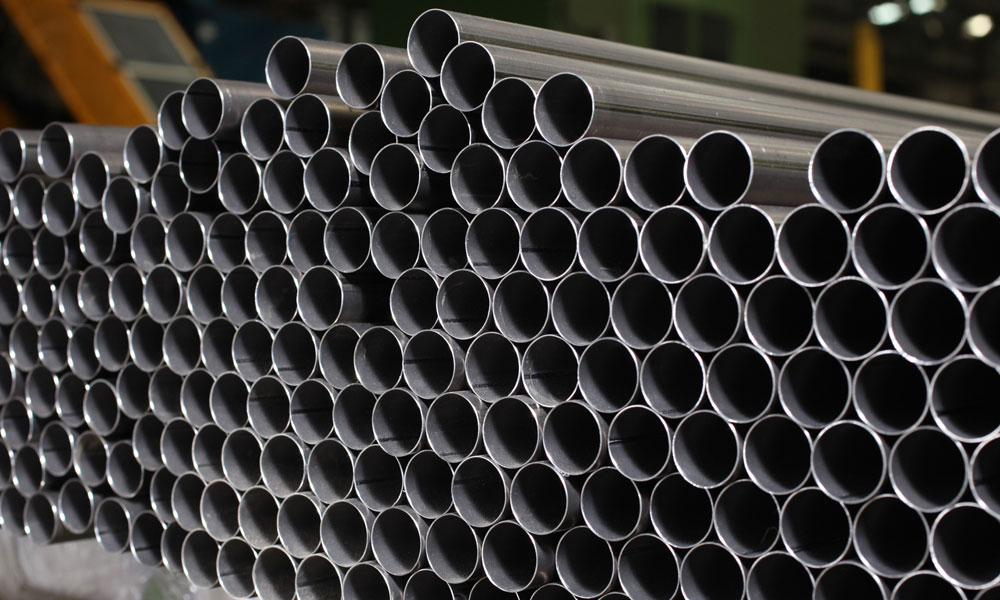AMS 6931 Titanium: Features and Aerospace Applications
AMS 6931 Titanium is a prominent aerospace material specification known for its unique blend of properties suitable for high-performance applications in the aerospace industry. This specification defines a titanium alloy, typically Titanium 6Al-4V, recognized for its high strength, light weight, and exceptional corrosion resistance. These characteristics make AMS 6931 an ideal choice for critical aerospace components.
Key Features of AMS 6931 Titanium
- High Strength-to-Weight Ratio: This alloy exhibits a remarkable strength-to-weight ratio, essential for aerospace components where weight reduction is crucial without compromising structural integrity.
- Corrosion Resistance: Exceptional resistance to corrosion, especially against environmental and operational factors in aerospace applications, is a key attribute of AMS 6931.
- High-Temperature Performance: It maintains its strength and structural integrity even under high temperatures, which is critical for parts exposed to extreme thermal environments.
- Biocompatibility: Often overlooked, the biocompatibility of AMS 6931 makes it suitable not just for aerospace, but also for biomedical applications.
Aerospace Applications of AMS 6931 Titanium
- Aircraft Structural Components: Utilized in the manufacture of critical structural elements of aircraft due to its strength and lightweight.
- Engine Components: Ideal for engine parts, especially in hot sections of jet engines, due to its high-temperature stability.
- Fasteners and Gears: Its wear resistance and strength make it suitable for high-stress parts like fasteners and gears.
AMS 6930 in Aerospace Material Engineering
AMS 6930 Titanium is another crucial specification in the aerospace industry, defining the unalloyed titanium grade. While similar to AMS 6931 in some aspects, AMS 6930 is distinct in its composition and specific applications.
Characteristics of AMS 6930 Titanium
- Unalloyed Grade: Unlike AMS 6931, AMS 6930 is an unalloyed, commercially pure titanium grade, offering a different balance of mechanical properties.
- Ductility and Formability: It offers higher ductility and formability compared to alloyed grades, making it suitable for components requiring extensive shaping or forming.
- Moderate Strength: While not as strong as AMS 6931, it still provides adequate strength for many aerospace applications.
- Excellent Weldability: AMS 6930 is known for its superior weldability, an essential factor for aerospace manufacturing processes.
Use of AMS 6930 Titanium in Aerospace
- Airframe Components: Its formability and moderate strength make it suitable for airframe components, including skins and other non-critical structural parts.
- Hydraulic Systems: The corrosion resistance and strength of AMS 6930 are ideal for hydraulic system components.
- Interior Cabin Hardware: Due to its lower strength compared to AMS 6931, it finds use in less demanding applications such as interior cabin hardware.
When comparing AMS 6931 and AMS 6930 Titanium, it’s important to understand their key differences and similarities, as these characteristics determine their suitability for various applications in aerospace and beyond.
Key Differences between AMS 6931 and AMS 6930
- Alloy Composition:
- AMS 6931: This specification defines a Titanium 6Al-4V alloy, a combination of titanium with 6% aluminum and 4% vanadium. This alloying enhances its strength and heat resistance.
- AMS 6930: In contrast, AMS 6930 specifies commercially pure, unalloyed titanium. This composition offers different mechanical properties, emphasizing ductility and formability over strength.
- Mechanical Properties:
- AMS 6931: Known for its high strength-to-weight ratio, excellent high-temperature performance, and good corrosion resistance. It is particularly strong, making it suitable for critical structural applications.
- AMS 6930: Although still strong, it is more ductile and formable compared to AMS 6931. Its strength is moderate when compared to alloyed titanium grades.
- Applications:
- AMS 6931: Predominantly used for high-stress, high-temperature applications such as aircraft structural components, engine parts, and fasteners.
- AMS 6930: More suited for applications requiring extensive shaping or forming, such as airframe components, hydraulic systems, and interior cabin hardware.
Key Similarities between AMS 6931 and AMS 6930
- Corrosion Resistance: Both grades offer excellent corrosion resistance, making them ideal for aerospace applications where exposure to harsh environments is common.
- Biocompatibility: Both AMS 6931 and AMS 6930 are biocompatible, making them suitable not only for aerospace but also for biomedical applications.
- Aerospace Suitability: Both materials are widely used in the aerospace industry due to their inherent titanium characteristics like lightweight, strength, and resistance to environmental factors.
- Weldability: While AMS 6930 is particularly noted for its excellent weldability, AMS 6931 also exhibits good weldability, a crucial factor in aerospace manufacturing processes.
Advanced Properties of AMS 6931 for Aerospace Use
AMS 6931 Titanium, specifically tailored for aerospace applications, possesses a set of advanced properties that make it highly suitable for this demanding sector:
- High Strength-to-Weight Ratio: The alloy’s exceptional strength coupled with its lightweight nature makes it invaluable in aerospace design, contributing to fuel efficiency and overall aircraft performance.
- Superior Corrosion Resistance: Its excellent resistance to corrosion, including environmental and chemical aggressors, extends the lifespan and reliability of aerospace components.
- High-Temperature Capability: AMS 6931 retains its mechanical properties even in elevated temperatures, crucial for parts exposed to extreme heat, such as in and around jet engines.
- Fatigue and Crack Resistance: The material’s resilience to fatigue and cracking under repeated stress cycles ensures durability and safety in critical aerospace applications.
- Good Creep Resistance: It maintains its form and strength under constant stress over time, especially important in high-temperature environments.
- Biocompatibility: Though more pertinent to medical applications, this property is indicative of its safety in environments involving human interaction.
- Ease of Fabrication and Weldability: Despite its strength, AMS 6931 can be fabricated and welded into complex shapes, offering flexibility in aerospace component design.
AMS 6930 in Modern Aerospace Design
AMS 6930 Titanium, known for its pure, unalloyed form, plays a significant role in modern aerospace design:
- Ductility and Formability: Its malleability allows for its use in intricate aerospace components that require detailed shaping or forming.
- Moderate Strength and Lightweight: While not as strong as its alloyed counterparts, AMS 6930 offers sufficient strength for many aerospace applications, combined with the advantage of being lightweight.
- Excellent Weldability: Its superior weldability makes it a preferred choice for aerospace designs that require complex welding.
- Corrosion Resistance: Like AMS 6931, AMS 6930 exhibits excellent resistance to corrosion, which is vital for the longevity and reliability of aerospace components.
- Applicability in Non-Critical Structural Parts: Due to its lower strength compared to AMS 6931, AMS 6930 is often used in less critical structural parts of aircraft, such as certain airframe components.
- Hydraulic Systems: Its strength and corrosion resistance make it suitable for components in aerospace hydraulic systems.
- Cabin Hardware: The material’s properties are well-suited for interior cabin hardware, where extreme strength is not the primary requirement but lightweight and corrosion resistance are still important.
Impact of AMS Specifications on Aerospace Material Innovation
The American Material Specifications (AMS) for titanium, particularly AMS 6931 and AMS 6930, have had a significant impact on innovation in aerospace materials. Here’s how these specifications have driven advances:
- Enhanced Material Performance: AMS specifications have guided the development of titanium alloys with optimized properties such as strength, weight, and corrosion resistance, essential for aerospace applications. This has led to more efficient, reliable, and longer-lasting aerospace components.
- Standardization and Reliability: The establishment of these standards has ensured uniformity and reliability in material quality, critical for safety in aerospace engineering. Manufacturers and engineers can confidently use these materials, knowing they meet stringent industry requirements.
- Fuel Efficiency and Environmental Impact: The lightweight nature of AMS-spec titanium alloys contributes to increased fuel efficiency in aircraft, which is a major factor in reducing the environmental impact of aviation.
- Innovation in Design and Engineering: The properties of these titanium alloys have allowed engineers to push the boundaries of aerospace design, enabling the creation of more complex and efficient structures and components.
- Expansion into Other Industries: While tailored for aerospace, the advancements and reliability of AMS-spec titanium have led to their adoption in other industries, such as automotive and biomedical engineering.
Mechanical Strengths of AMS 6931 vs. AMS 6930
When comparing the mechanical strengths of AMS 6931 and AMS 6930, several key differences and similarities stand out:
AMS 6931 Titanium
- Composition: Alloyed (Titanium 6Al-4V), providing enhanced mechanical properties.
- Strength: Higher tensile strength due to the addition of aluminum and vanadium. Ideal for high-stress applications.
- Temperature Resistance: Maintains strength at higher temperatures, suitable for engine parts and other high-heat areas.
- Fatigue Resistance: Excellent fatigue resistance, important for parts undergoing cyclic stress.
- Crack Resistance: Better resistance to crack propagation, which is vital for structural integrity.
AMS 6930 Titanium
- Composition: Unalloyed, commercially pure titanium.
- Strength: Moderate strength compared to AMS 6931, but still adequate for many aerospace applications.
- Ductility: Higher ductility, which allows for more extensive shaping and forming.
- Formability: Better formability, making it suitable for components requiring intricate manufacturing processes.
- Weldability: Superior weldability due to its unalloyed nature, important for complex assembly processes.
Comparison
- AMS 6931 excels in applications requiring higher strength, temperature resistance, and fatigue resistance, making it suitable for critical structural and engine components.
- AMS 6930, on the other hand, is preferred in applications where formability and weldability are more important than ultimate strength, such as in certain airframe parts and cabin hardware.
In conclusion, both AMS 6931 and AMS 6930 have their unique mechanical strengths, catering to different needs in aerospace engineering. The choice between them depends on the specific requirements of the application, balancing factors like strength, ductility, temperature resistance, and manufacturing processes. Their distinct properties have played a vital role in advancing aerospace material innovation, leading to safer, more efficient, and more sustainable aircraft designs.





